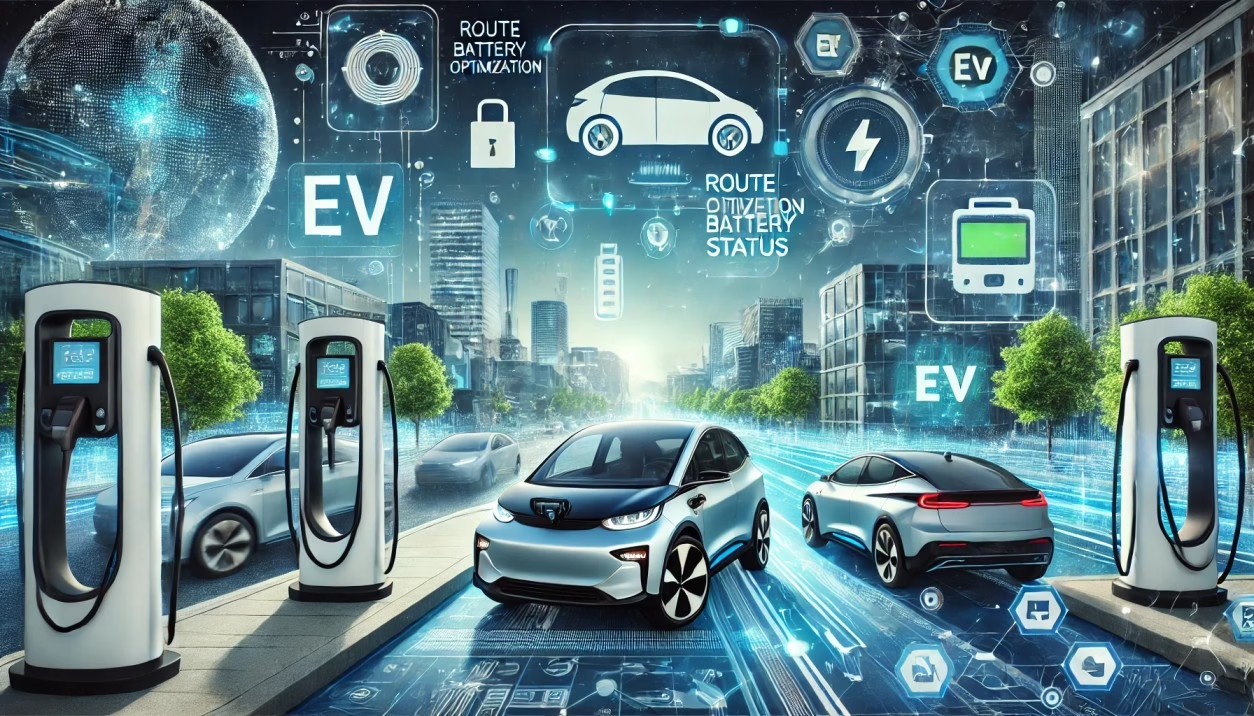The rapid evolution of technology in the 21st century has brought about an era where artificial intelligence (AI) and electric vehicles (EVs) are at the forefront of innovation. The convergence of AI cloning technologies with electric vehicle (EV) app development is unlocking new possibilities that have the potential to change the way we interact with transportation, mobility, and even digital systems.
This combination of fields promises a more personalized and efficient future, where AI assists in the management of complex systems and EV apps revolutionize user experience and accessibility.
In this article, we will explore the intersection of AI cloning and EV app development, delving into how these two technologies are working together to drive innovation in the tech world.
The Importance of AI Cloning
AI cloning refers to the process of creating digital replicas of human behaviors, thought processes, or systems through artificial intelligence. This can involve mimicking specific human actions, decisions, or patterns using machine learning models and algorithms. Solutions like the Candy AI clone platform are advancing this technology, enabling businesses to implement AI-driven personalization across industries, from customer service to healthcare, and even the automotive sector.
In essence, AI cloning involves using data to create a virtual representation of an individual’s or a system’s characteristics. This “clone” can then operate autonomously or assist humans in specific tasks without direct interaction. In the context of EVs, AI cloning can serve as an important tool for automating certain aspects of vehicle management, personalized driving experiences, and even improving safety features.
Key Benefits of AI Cloning:
- Personalization: AI cloning allows for a customized user experience by replicating behaviors or preferences, which can be tailored to the specific needs of the driver.
- Efficiency: By automating tasks or processes, AI clones can optimize the overall driving experience, reducing time and energy spent on routine activities.
- Predictive Capabilities: AI systems can predict and adapt to future behaviors based on past actions, allowing for smarter and more proactive systems.
The Role of EV Apps in the Future of Transportation
Electric vehicle apps are becoming a central part of the modern EV ecosystem. These apps allow users to control various aspects of their electric vehicles, ranging from charging stations to vehicle health diagnostics. As the world continues to transition towards sustainable transportation, EV apps will play a pivotal role in enhancing the overall user experience, making EVs more convenient, accessible, and integrated into daily life.
EV apps have evolved from simple charging location finders to comprehensive tools that monitor battery life, manage charging schedules, and even offer real-time navigation based on energy consumption. With the integration of AI technologies, these apps are becoming smarter, capable of offering more precise recommendations, predictive maintenance, and dynamic routing.
Core Features of EV Apps:
- Battery Management: Real-time monitoring of battery health, energy levels, and charging status.
- Charging Station Finder: Locating nearby charging stations and planning charging routes based on energy needs.
- Vehicle Diagnostics: Offering insights into the vehicle’s performance, such as tire pressure, battery health, and overall system performance.
- Remote Control Features: Allowing users to remotely start, stop, or monitor their EVs.
How AI Cloning and EV Apps Work Together
The fusion of AI cloning with EV app development opens up a new frontier of innovation. By incorporating AI cloning techniques, developers can create EV apps that go beyond simple functions to offer highly personalized, predictive, and proactive features.
Here’s how combining these two technologies leads to greater tech advancements:
1. Personalized Driving Experiences
AI clones can analyze the habits and preferences of individual drivers and replicate those behaviors within the EV app. For example, a driver’s preferred routes, driving style, or climate control settings could be learned by the app and applied automatically. This enhances the driving experience by making it more intuitive and tailored to each user’s needs.
- Example: If an AI clone learns that a user often drives at higher speeds, it can optimize energy consumption during travel to ensure longer battery life while maintaining performance.
- Energy Management: AI cloning can also predict the user’s preferred energy consumption pattern and suggest driving or charging habits that minimize cost while maximizing efficiency.
2. Improved Vehicle Diagnostics and Maintenance
By combining AI clones with EV apps, car diagnostics can be made more sophisticated. Rather than just giving alerts for issues like low battery or tire pressure, AI-powered systems can predict and even prevent potential failures before they occur. The AI clone can learn the performance history of the vehicle and suggest adjustments to prevent wear and tear.
- Example: An AI clone could track historical data, learning which parts of the vehicle tend to require maintenance sooner than others. It might recommend when to schedule an appointment for service, based on driving habits or weather conditions.
3. Predictive Charging and Energy Usage
One of the greatest concerns for EV drivers is range anxiety—the fear that the vehicle will run out of battery before reaching the nearest charging station. By using AI clones to analyze the driver’s patterns, the app can predict when and where the driver will need to charge next. The system can even suggest the best route to minimize energy consumption and ensure the driver always has enough charge to reach the destination.
- Example: If the app notices that the user typically drives long distances on weekends, it might suggest charging up during the workweek to ensure the weekend trip can be completed without interruptions.
4. Enhanced Driver Safety
AI cloning technology can be integrated with real-time data from sensors within the vehicle to monitor and react to the driver’s behavior. The AI clone can track how aggressively a driver brakes or accelerates, how often they take their hands off the wheel, or how alert they are while driving. Based on this, the app could provide warnings or adjust certain vehicle settings to improve safety.
- Example: If the system detects that a driver is becoming fatigued or distracted, the AI clone could automatically adjust the vehicle’s speed or engage safety features, such as lane-keeping assistance, to ensure safer driving.
5. Efficient Navigation and Route Planning
AI-enabled EV apps can work to make route planning more efficient, taking into account traffic, weather conditions, and energy consumption patterns. By combining these data points with an AI clone of the driver’s habits, the app can suggest the most energy-efficient routes, or even plan pit stops for charging based on the user’s historical preferences.
- Example: The app could suggest a route that avoids areas with heavy traffic or climbs, where energy consumption might spike, thus preserving battery life for longer.
The Future of AI Cloning and EV App Integration
As the technology continues to evolve, the integration of AI cloning into EV apps will become even more seamless. The future of transportation will likely see AI clones managing everything from routine vehicle maintenance to optimizing driving behavior for safety and efficiency.
Potential Impacts of Further Integration:
- Autonomous Vehicle Systems: As autonomous vehicles become more common, AI clones will play a role in managing the vehicle’s decision-making process, replicating human driving behavior and ensuring the vehicle can react appropriately to unexpected situations.
- Fleet Management: For businesses with multiple EVs, AI cloning can be used to create a virtual fleet manager, replicating the behaviors and decisions.
Challenges and Considerations:
While the combination of AI cloning and EV apps presents exciting opportunities, there are several challenges that must be addressed. EV app development firms need to tackle issues such as data privacy, real-time processing capabilities, and ensuring seamless integration of AI-driven features to enhance user experience and operational efficiency.
- Data Privacy: AI cloning relies heavily on data collection, which could raise concerns about user privacy.
- Accuracy: AI clones must be accurate in replicating human behavior to ensure that their suggestions are helpful and safe.
- Integration: Integrating AI clones into EV apps and ensuring they function correctly across various vehicle types .
Conclusion
The fusion of AI cloning technology with electric vehicle app development is transforming the landscape of both fields. By combining the predictive and adaptive power of AI with the capabilities of EV apps, a more personalized experience is emerging.
As these technologies continue to evolve, they will likely shape the future of transportation, offering drivers smarter vehicles, convergence a crucial area of focus for the future of tech development.




